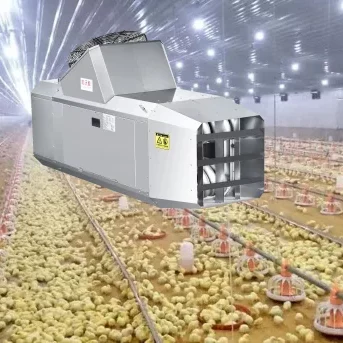When it comes to maintaining a comfortable and efficient workspace, selecting the right heating system is essential. Gas unit heaters have gained popularity for their ability to provide consistent warmth while being energy-efficient. This guide explores the key features to consider when choosing high-quality gas unit heaters, helping you make an informed decision that best meets your needs.
Table of Contents:
Safety Mechanisms Ensuring Workplace Safety
Thermostatic Controls Achieving Optimal Temperature Regulation

Safety Mechanisms Ensuring Workplace Safety
Safety is paramount when working with heating equipment. High-quality gas unit heaters come equipped with advanced safety features to protect both users and their surroundings. Look for units with overheat protection, flame-out safeguards, and reliable ignition systems. These features not only enhance safety but also contribute to the heater’s longevity.
In addition to these built-in safety mechanisms, consider models that incorporate low-emission technology to reduce the risk of harmful gas buildup, ensuring a healthier environment. A heater that prioritizes safety provides peace of mind, minimizing the likelihood of accidents or malfunctions.
Finally, ensure that the heater you choose complies with relevant safety standards and certifications. Products that meet these rigorous benchmarks have undergone extensive testing for performance and reliability, offering an extra layer of assurance for your workspace.
Thermostatic Controls Achieving Optimal Temperature Regulation
Temperature control is essential for maintaining a comfortable and energy-efficient environment. Gas unit heaters with advanced thermostatic controls allow for precise temperature adjustments, ensuring optimal warmth without unnecessary energy waste. This feature is especially beneficial in environments with fluctuating temperatures, as it enables quick and efficient adjustments.
High-quality heaters often come with programmable settings, allowing users to customize heating schedules. This not only enhances comfort but also promotes energy efficiency by reducing heating when it’s not needed. The ability to set specific temperatures can lead to significant cost savings over time.
For added convenience, consider heaters that integrate smart technology, enabling remote control capabilities. This allows users to manage the heating system from anywhere, offering flexibility and ease of use. Smart thermostatic controls are a modern solution that meets the evolving needs of contemporary workspaces.
Fuel Compatibility Options for Natural Gas and Propane
When selecting a gas unit heater, fuel compatibility is an important factor to consider. High-quality heaters offer versatility by supporting both natural gas and propane, allowing users to choose the most suitable fuel type based on availability and location. This flexibility helps optimize energy consumption and cost-effectiveness.
Natural gas is often preferred due to its lower cost and environmental benefits. It produces fewer emissions compared to other fossil fuels, making it a more eco-friendly choice. Propane, however, is known for its portability and higher energy content, making it an ideal option for areas without natural gas access.
When choosing a heater, consider the ease of switching between fuel types. Some models are designed for easy conversion, ensuring adaptability to changing fuel needs. This flexibility ensures that your heating solution remains efficient and viable, regardless of external factors.
Noise Levels Maintaining a Comfortable Work Environment
An often overlooked aspect of gas unit heaters is the noise level during operation. High-quality heaters are designed to minimize noise, ensuring a comfortable and distraction-free work environment—especially important in settings where concentration and communication are essential.
Look for heaters equipped with sound-dampening technology, which reduces operational noise without sacrificing performance. Quiet operation is a key feature of well-designed heating equipment, demonstrating attention to detail and a focus on user comfort.
In addition to noise-reducing features, consider the installation location and how it may affect sound levels. Proper placement can further minimize noise, contributing to a more peaceful and productive workspace. Prioritizing noise management in your heating solution can greatly enhance overall workplace satisfaction.
Selecting the right gas unit heater requires an understanding of the key features that contribute to both quality and effectiveness. By focusing on essential factors like safety mechanisms, thermostatic controls, fuel compatibility, and noise levels, you can choose a heater that best suits your specific needs. For additional guidance, consulting with a professional can offer valuable insights and tailored recommendations to help you find the ideal heating solution for your workspace.
